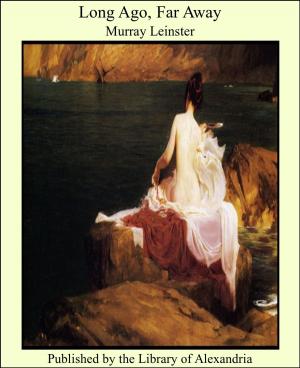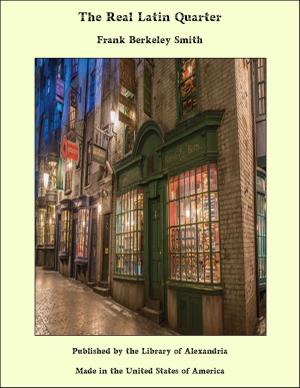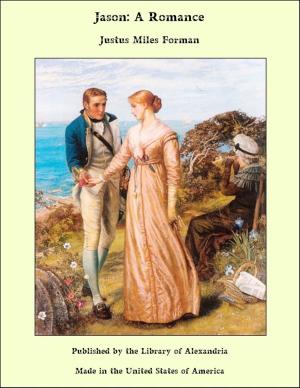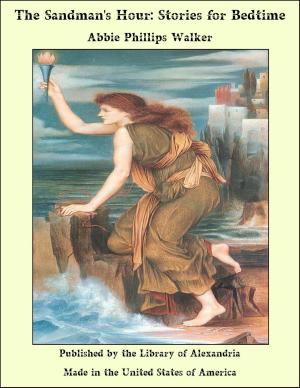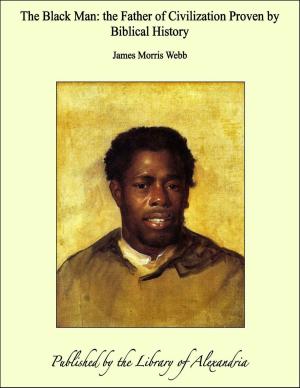| Author: | Louis Becke | ISBN: | 9781465551894 |
| Publisher: | Library of Alexandria | Publication: | March 8, 2015 |
| Imprint: | Language: | English |
| Author: | Louis Becke |
| ISBN: | 9781465551894 |
| Publisher: | Library of Alexandria |
| Publication: | March 8, 2015 |
| Imprint: | |
| Language: | English |
A small, squat and dirty-looking trading steamer, with the name Motutapu painted in yellow letters on her bows and stern, lay at anchor off the native village of Utiroa on Drummond's Island in the Equatorial Pacific. She was about 800 tons burden, and her stained and rusty sides made her appear as if she had been out of port for two years instead of scarcely four months. At this present moment four of her five boats were alongside, each one piled high over the gunwales with bags of copra, which the steam winch was hoisting in as quickly as possible, for night was drawing on and Captain Louis Hendry, who was then ashore, had given orders to the mate, a burly Yorkshireman named Oliver, to be ready to heave up at six o'clock. The day had been intensely hot and windless, the sea lay sweltering, leaden-hued and misty, and the smoke from the native houses in Utiroa village hung low down amid the groves of coco-palms which encompassed it on three sides. On the after-deck of the steamer, under the awning, a man was lying on a bed of mats, with a water-bottle and a plate of bananas beside him. Seated cross-legged beside him was a native boy, about fifteen years of age, who kept fanning his master's face, and driving away the pestering flies. It was easy to see that the man was suffering from fever. His deeply-bronzed cheeks had yellowed and were thin and hollow, and his eyes dull and apathetic. He looked like a man of fifty, though he was in reality not more than thirty-two. Every now and then he drank, then lay back again with a groan of pain. Piled up on the skylight was a heap of rugs and blankets, for use when the violent chilling attack of ague would follow on the burning, bone-racking heat of fever
A small, squat and dirty-looking trading steamer, with the name Motutapu painted in yellow letters on her bows and stern, lay at anchor off the native village of Utiroa on Drummond's Island in the Equatorial Pacific. She was about 800 tons burden, and her stained and rusty sides made her appear as if she had been out of port for two years instead of scarcely four months. At this present moment four of her five boats were alongside, each one piled high over the gunwales with bags of copra, which the steam winch was hoisting in as quickly as possible, for night was drawing on and Captain Louis Hendry, who was then ashore, had given orders to the mate, a burly Yorkshireman named Oliver, to be ready to heave up at six o'clock. The day had been intensely hot and windless, the sea lay sweltering, leaden-hued and misty, and the smoke from the native houses in Utiroa village hung low down amid the groves of coco-palms which encompassed it on three sides. On the after-deck of the steamer, under the awning, a man was lying on a bed of mats, with a water-bottle and a plate of bananas beside him. Seated cross-legged beside him was a native boy, about fifteen years of age, who kept fanning his master's face, and driving away the pestering flies. It was easy to see that the man was suffering from fever. His deeply-bronzed cheeks had yellowed and were thin and hollow, and his eyes dull and apathetic. He looked like a man of fifty, though he was in reality not more than thirty-two. Every now and then he drank, then lay back again with a groan of pain. Piled up on the skylight was a heap of rugs and blankets, for use when the violent chilling attack of ague would follow on the burning, bone-racking heat of fever









